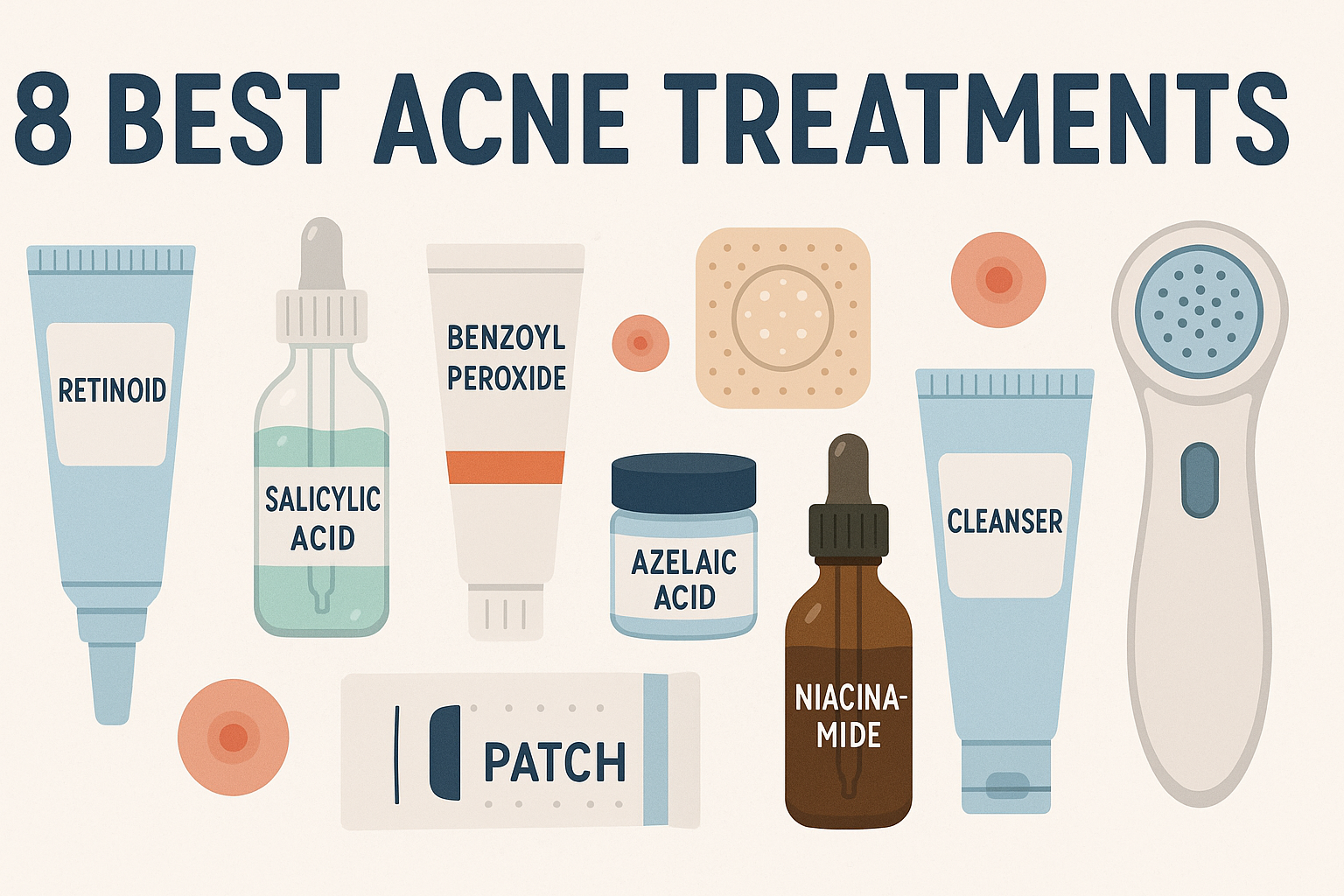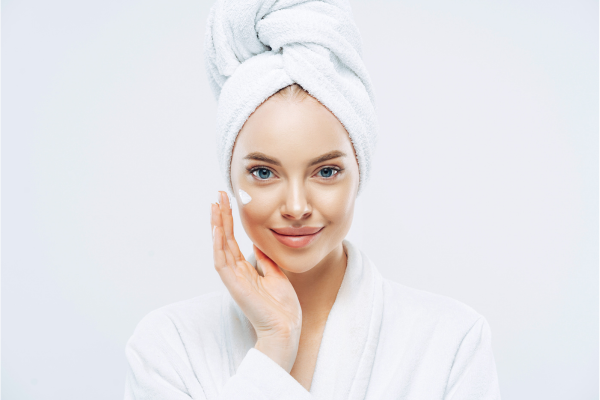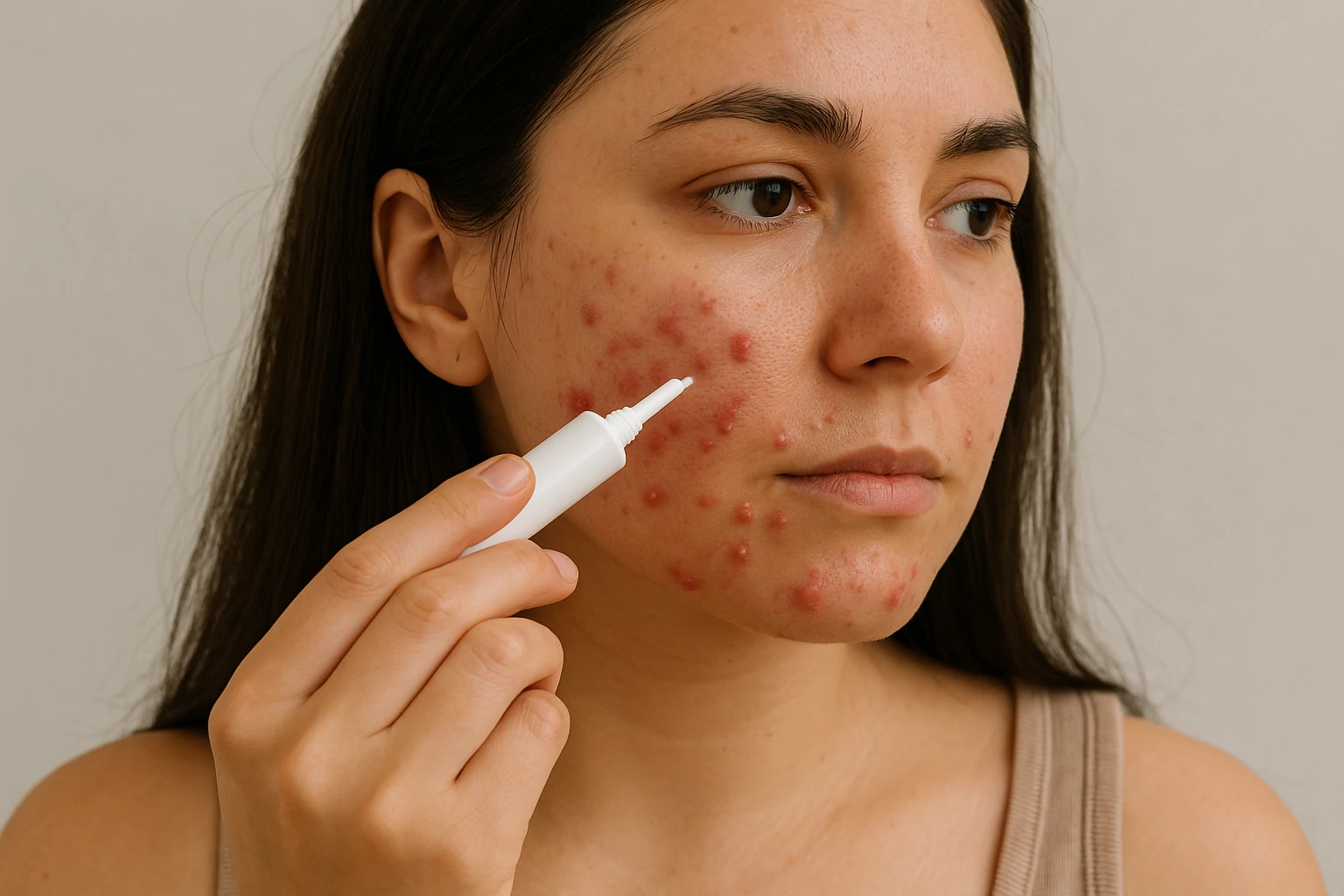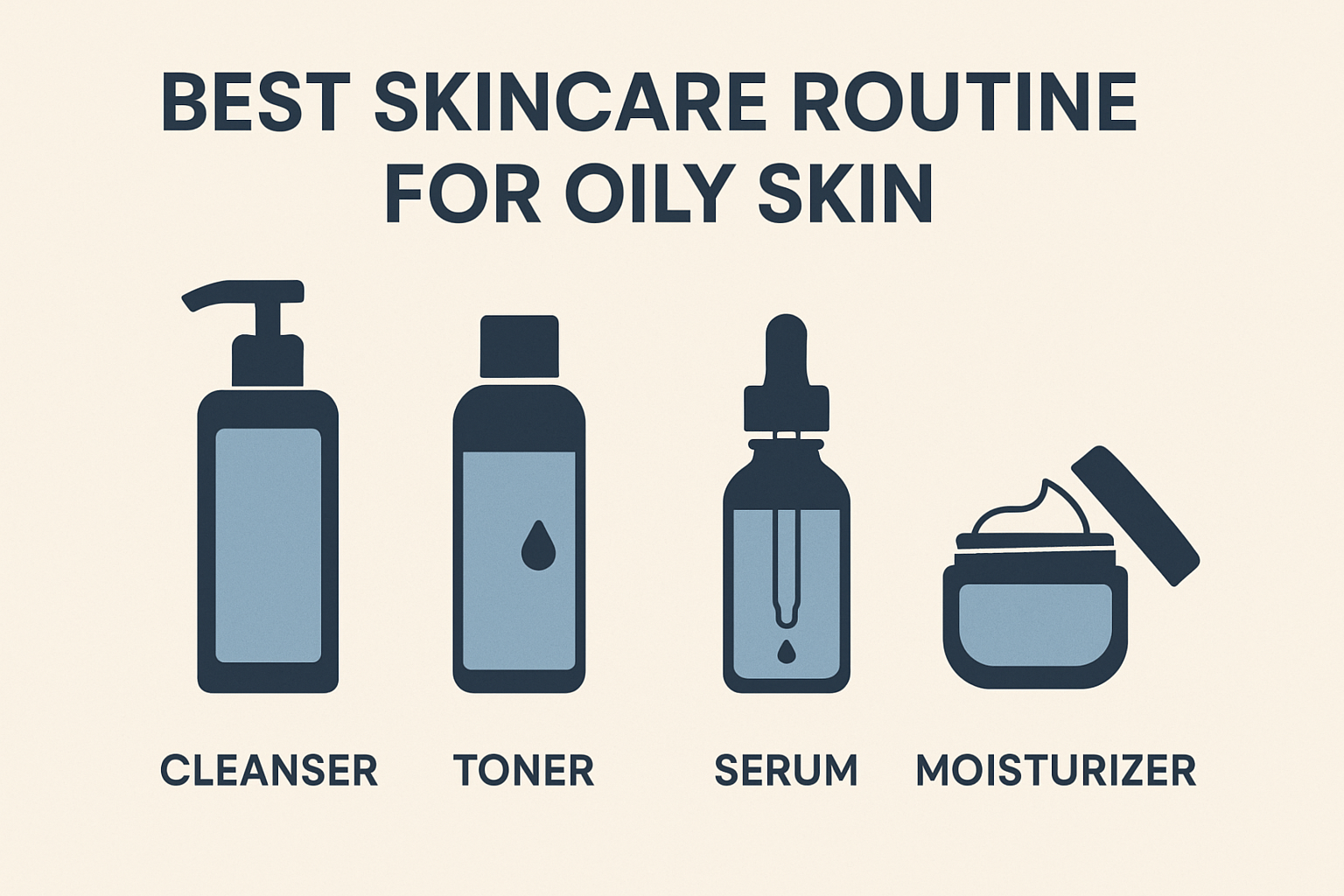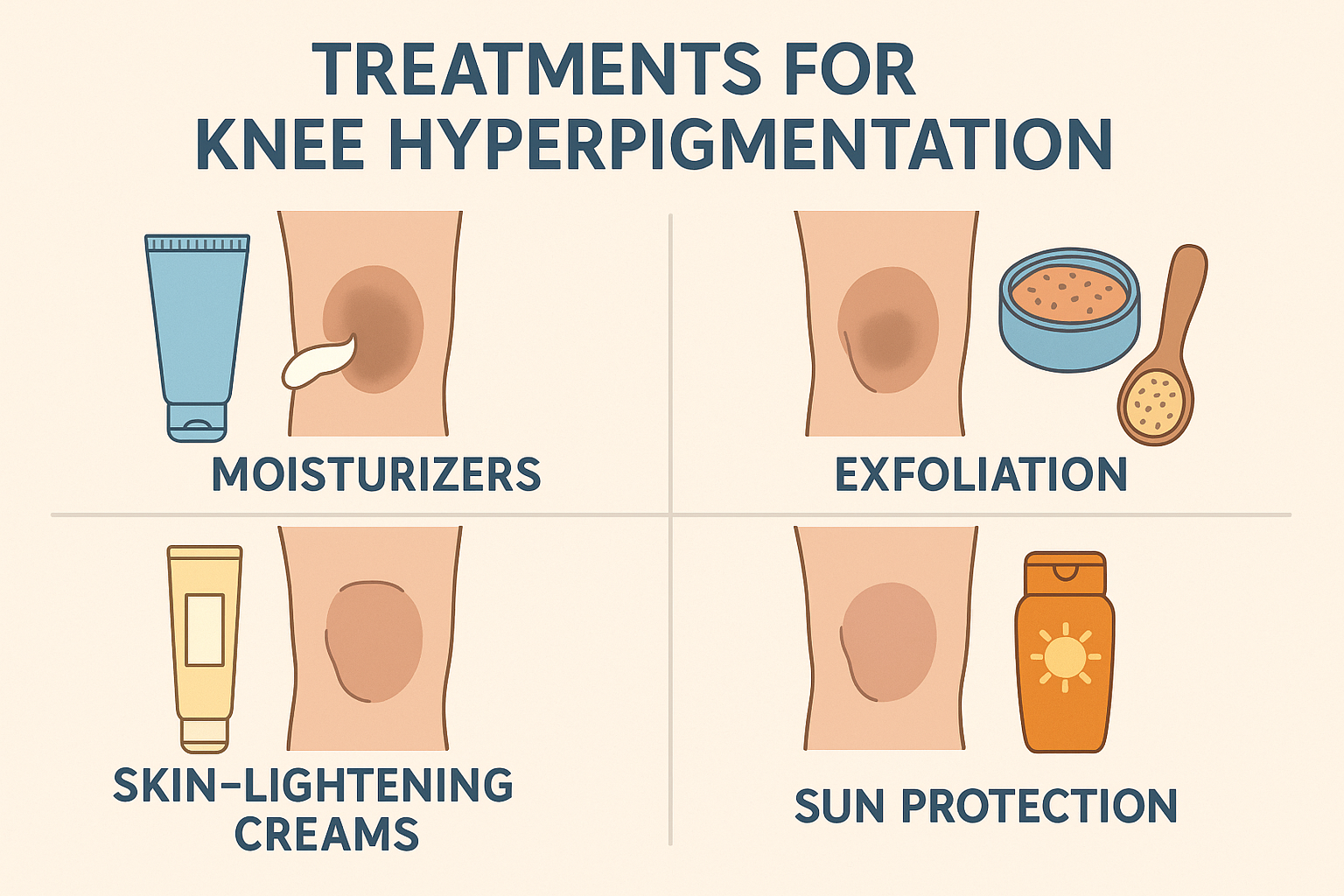7 Proven Ways to Even Skin Tone, Backed by Dermatologists

Having an even skin tone can make your face look brighter, healthier, and naturally glowing. Unfortunately, many people experience issues such as hyperpigmentation, redness, rosacea, dark spots, melasma, or sun damage. All of these can cause uneven skin tone, making the skin appear dull and even feel rough.
Medically, uneven skin tone is usually caused by disruptions in melanin production (the skin’s natural pigment), inflammation, or damage to the small blood vessels beneath the skin’s surface. For example, hyperpigmentation occurs due to excessive melanin production in certain areas, while rosacea is caused by dilated and inflamed blood vessels. UV exposure also worsens these issues, especially if you rarely use sunscreen.1emc+HEALTHCARE: Uneven Skin? Get to know hyperpigmentation and its causes
The good news is, there are many effective ways to improve uneven skin tone. From skincare products containing active ingredients like niacinamide, vitamin C, retinoids, to kojic acid—these are all scientifically proven to help brighten and fade dark spots. Of course, the best results come from a consistent routine and products suited to your skin type—plus, never skip sunscreen!
In this article, you will find 7 dermatologist-recommended ways to even out your skin tone. All are safe, proven effective, and suitable for those just starting to seriously care for their skin.
What Causes Uneven Skin Tone?
Uneven skin tone can be caused by various factors, and often more than one factor occurs simultaneously. Here are some of the most common causes according to dermatologists:
- Hyperpigmentation
This condition occurs when the skin produces too much melanin—the natural pigment that gives skin its color. The result can be dark spots, acne scars, or marks caused by sun exposure. Hyperpigmentation typically appears in areas frequently exposed to UV rays or after the skin has been inflamed.2emc+HEALTHCARE: Uneven Skin? Get to know hyperpigmentation and its causes - Acne Scars
After acne heals, the skin can leave behind dark or reddish marks. This is called post-inflammatory hyperpigmentation (PIH), and it often occurs in darker skin tones. If you tend to pick at your acne, the scars can become even harder to fade.3verywellhealth: How to Treat Post-Inflammatory Hyperpigmentation - Sun Damage
Exposure to the sun without protection can cause sun spots (dark spots from the sun), uneven skin tone, and worsen existing hyperpigmentation. This is why sunscreen is a must, even on cloudy days. - Hormonal Imbalance
Hormonal changes, especially during pregnancy, birth control pill use, or conditions like melasma, can trigger uneven skin tone. These spots usually appear on the cheeks, forehead, or above the upper lip. - Skin Inflammation
Conditions such as eczema, psoriasis, or allergies can also leave uneven discoloration after healing. The more often your skin gets irritated, the higher the risk of uneven tone.4ECZEMA: Skin pigmentation and eczema - Lifestyle Factors
Lack of sleep, stress, pollution, alcohol consumption, and smoking can all affect overall skin health, including making your skin look dull and uneven.
How to Even Out Your Skin Tone, According to Dermatologists
Having an even skin tone is the dream of many because it reflects overall skin health and beauty. However, issues such as hyperpigmentation, redness, age spots, and acne scars often make the skin tone appear uneven. According to dermatologists, the key to evening out skin tone is understanding its causes and consistently following the right treatments.
Dr. Neal Schultz, a dermatologist from New York, explains that uneven skin tone is usually influenced by two main factors: rough skin texture and color differences caused by excess melanin production or inflammation. Rough skin cannot reflect light well, making the face look dull and patchy.5Byrdie: 7 Ways to Even-Out Your Skin Tone, According to Dermatologists
To address this, experts recommend a combination of treatments such as gentle chemical exfoliation to remove dead skin cells, using active ingredients like vitamin C to brighten the skin, and regular protection with sunscreen. These treatments not only help reduce dark spots and redness but also maintain a bright and even skin tone in the long term.
Additionally, consulting with a dermatologist is important to receive appropriate treatment, especially if you have issues like melasma or rosacea. With the right approach and discipline in your skincare routine, achieving an even skin tone is no longer difficult.
1. Add a Chemical Exfoliant to Your Skincare Routine
One of the most effective ways to even out your skin tone is by regularly performing chemical exfoliation. This exfoliation removes dead skin cells that accumulate on the surface, making the skin smoother and better able to reflect light. Smooth skin will make your skin tone appear brighter and more even.
Dr. Neal Schultz, a dermatologist from New York, emphasizes that about 75% of skin tone appearance is influenced by how well light reflects off the skin’s surface. Chemical exfoliation using active ingredients such as AHA (alpha hydroxy acid), BHA (beta hydroxy acid), or retinoids helps accelerate skin cell regeneration without damaging the skin’s protective barrier.
Glycolic acid, a type of AHA that is gentle yet effective, is highly recommended. Besides removing dead skin cells, glycolic acid also stimulates collagen production, which is important for maintaining good skin texture and elasticity.
By adding chemical exfoliation regularly to your skincare routine, you can improve skin texture and naturally even out your skin tone gradually. Remember to apply it gently and according to your skin type for optimal results without irritation.
2. Get a Gentle Chemical Peel for Instant Glow
For faster results in evening out your skin tone, a chemical peel can be an effective option. Dr. Neal Schultz recommends using a peel with glycolic acid because it can provide an instant brightening and glowing effect. However, this treatment should be chosen carefully, especially for sensitive skin or skin prone to hyperpigmentation.
Peels that are too strong can cause redness, irritation, or even minor wounds that worsen the skin condition.6Cleveland Clinic: Chemical Peels Inflammation from irritation can trigger new dark spots, so it’s important to select gentle and non-aggressive peel products.
Light chemical peels with low concentrations of glycolic acid are generally safe for many skin types. Avoid using harsh physical exfoliators or aggressive peels if you are prone to pigmentation.
The key is gentleness and consistency. By protecting your skin from irritation and inflammation, the process of brightening and evening out your skin tone can be safer and more effective in the long term.
3. Incorporate Vitamin C for Brighter, Even Skin
Vitamin C is one of the best active ingredients for brightening the skin and reducing dark spots. Dr. Rachel Nazarian explains that besides exfoliating with glycolic acid, vitamin C and vitamin E also play a major role in evening out skin tone.
Vitamin C helps inhibit excessive melanin production while neutralizing free radicals that can damage the skin and worsen color imbalance. However, not all vitamin C products are equally effective.
The most common form of vitamin C, L-ascorbic acid, is easily oxidized and loses its benefits when exposed to light or air. Dr. Neal Schultz recommends more stable forms of vitamin C such as tetrahexyldecyl ascorbate—a lipid-based form that is better absorbed by the skin and gentler, especially for sensitive skin.7National Center for Biotechnology Information. PubChem compound summary for CID 15801292, tetrahexyldecyl ascorbate. Updated November 7, 2020.
By choosing the right vitamin C formulation, you can achieve brighter skin, more even tone, and safely reduce dark spots effectively.
4. Consult a Dermatologist About Hydroquinone for Dark Spots
Hydroquinone is a highly effective ingredient for treating dark spots, freckles, and melasma by inhibiting melanin production. Although effective, its use must be supervised by a dermatologist due to potential side effects.8Sarkar R, Arora P, Garg KV. Cosmeceuticals for hyperpigmentation: what is available? J Cutan Aesthet Surg. 2013;6(1):4-11. doi:10.4103/0974-2077.110089
Dr. Neal Schultz explains that without regular exfoliation, dead skin cells containing dark pigment accumulate on the skin, making spots more visible. Hydroquinone works by inhibiting the enzyme tyrosinase, which produces melanin, helping to gradually brighten the skin.
However, it is important to follow usage guidelines, typically a maximum of three months followed by a break to avoid irritation or other issues such as hypopigmentation and ochronosis (uneven skin darkening). With proper use and expert supervision, hydroquinone can be a powerful and safe solution for significantly evening out skin tone.
5. Use Topical Treatments to Reduce Redness
If you often experience facial redness due to rosacea or irritation, topical creams can be a quick and practical solution. Dr. Hadley King recommends prescription creams like Mirvaso (brimonidine), which work by constricting blood vessels in the skin, temporarily reducing redness.
“The effect is temporary but very noticeable,” says Dr. King. Results can be felt within hours, making it suitable for use before important events to calm the appearance of the skin.
Dr. Neal Schultz also recommends Rhofade (oxymetazoline) with a similar mechanism. However, he cautions that the effect lasts only 8–12 hours and may cause rebound redness afterward, which can be worse.
Therefore, these creams should be used occasionally, not as a long-term solution. More sustainable redness treatment requires a comprehensive approach such as UV protection, anti-inflammatory products, and stress management.
With a doctor’s guidance, topical creams can help quickly and safely control redness when needed.
6. Try Laser Treatments Like IPL or Fraxel for Faster Results
For faster and longer-lasting results in evening out skin tone, laser treatments at dermatology clinics can be an effective option. Dr. Debra King and Dr. Neal Schultz explain that technologies like IPL (Intense Pulsed Light) can target dilated small blood vessels—the cause of facial redness, especially in rosacea.
In addition, IPL and Fraxel 1927 lasers help address hyperpigmentation, such as sunspots or acne scars. These lasers penetrate the skin layers and stimulate regeneration, resulting in brighter and more even skin tone.
If you want to improve skin texture, Dr. Schultz recommends Fraxel 1550 laser or Vivace, which combines microneedling and radiofrequency. These treatments stimulate collagen production, refine pores, and reduce fine lines, making the skin look healthier and smoother.
However, lasers are not recommended for treating melasma. Although there may be temporary improvement, melasma is sensitive to heat, and lasers can trigger relapse within a few months. Melasma sufferers are better off choosing safer non-thermal treatments.9American Society for Dermatologic Surgery. Melasma.
With proper dermatologist consultation, laser technology can be part of a long-term strategy to achieve even, smooth, and radiant skin.
7. Be Diligent with Your Sunscreen
According to Dr. Rachel Nazarian and Dr. Neal Schultz, wearing sunscreen is absolutely essential to keep your skin tone even and bright, especially if you have issues like melasma. Melasma is sensitive to sunlight as well as your body’s hormones.
They recommend using physical (mineral) sunscreens containing ingredients like titanium dioxide or zinc oxide. Unlike chemical sunscreens, physical sunscreens reflect UV rays right off your skin, so they don’t cause heat that can worsen dark spots.
Melasma can easily come back, even after serious treatment. That’s why wearing sunscreen every day is a must—even on cloudy days or if you’re just indoors exposed to light from screens or lamps.
Choose a sunscreen with at least SPF 30 that’s gentle on your skin and won’t clog pores. Don’t forget to reapply every two hours when you’re outside.
If you’re diligent about using sunscreen properly, your skin won’t just be protected from UV rays but also less prone to new dark spots. The result? Your skin stays bright, even-toned, and healthy over the long term.
Best Products to Even Skin Tone
Best Exfoliator
This product contains 2% BHA, which is basically salicylic acid. Imagine it as a tiny brush that goes deep into your pores to clean out dirt and dead skin cells that cause dullness. Using this regularly makes your skin smoother and helps new skin layers emerge, leading to a more even tone.
Popular Toner
This toner has 7% glycolic acid, which acts like a gentle broom sweeping away dead skin cells from the surface. It helps brighten your skin naturally. Use this toner after cleansing for the best results.
Vitamin C Serum
This serum has a high concentration of vitamin C, which brightens your skin and reduces dark spots or acne scars. Think of vitamin C here as a gentle sunlight that “locks in” your bright skin so it lasts longer.
Dark Spot Remover
If you have stubborn dark spots, this serum could be your go-to. Its formula is designed to gradually fade dark spots and even out your skin tone fairly quickly. Perfect if you want noticeable results without waiting too long.
Sunscreen for Sensitive Skin
This sunscreen not only protects your skin from UV rays that can darken your skin and worsen spots, but it’s also gentle for sensitive skin. So, it helps maintain an even skin tone while keeping your skin safe from sun damage.
How to Even Skin Tone After Acne
Acne scars sometimes cause uneven skin tone, right? Some areas may be red or darker, making us less confident. But don’t worry, you can help your skin get more even with a few simple steps.
First, always keep your skin clean and use the right moisturizer. Clean, hydrated skin is like a blank canvas ready to be “made beautiful” again. If your skin is dry or dirty, acne marks will be harder to fade.
Next, try using products with BHA like salicylic acid. BHA helps exfoliate dead skin cells and cleans out pores, so acne scars causing uneven tone can gradually fade. Think of it as a little broom sweeping dust off your skin.
Also, vitamin C serum is highly recommended. Vitamin C brightens and protects your skin from sunlight, which can darken acne scars. So, don’t forget to wear sunscreen daily! This is important to make sure your treatments work.
If you want faster results, products with niacinamide are also good. This ingredient can reduce redness and make your skin texture smoother.
Most importantly, be patient and consistent. Evening out skin tone after acne takes time, so don’t give up. With regular care and attention, your skin will be bright and even again. Ready to feel confident every day!
About the Author
M. Hariri is a business and beauty content writer with over five years of experience. He focuses on research-based skincare education and frequently collaborates with dermatologists. His work can be found in various national and international beauty publications.

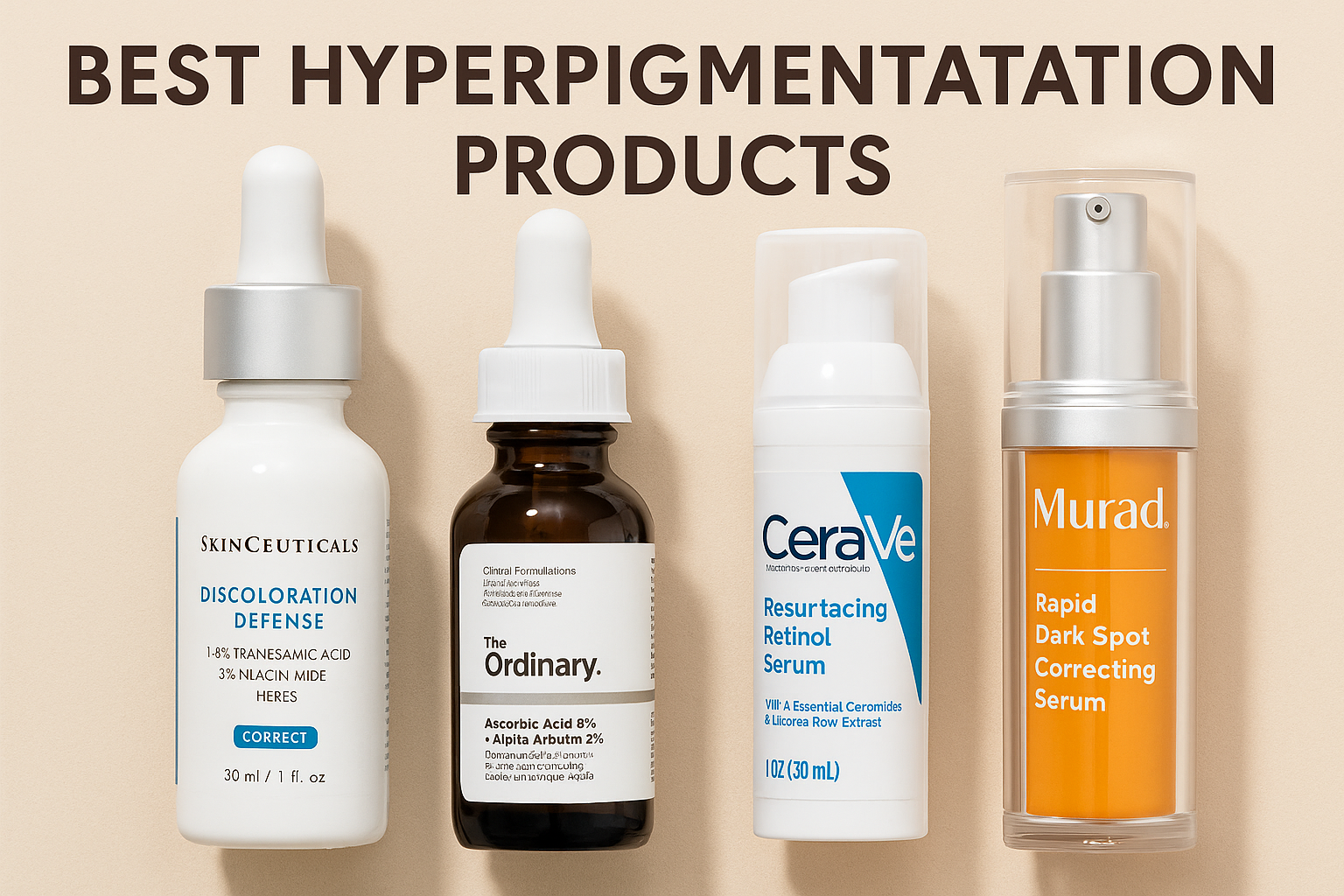




 Acne
Acne Anti-Aging
Anti-Aging Business
Business Digital Marketing
Digital Marketing Economics
Economics Exfoliation
Exfoliation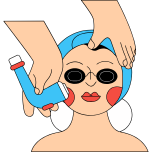 Hair Removal
Hair Removal Movies
Movies Personal Finance
Personal Finance Websites
Websites

